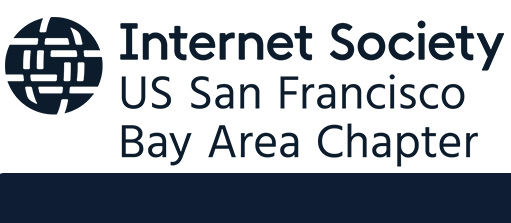Welcome to the February 2017 edition of the Internet Society North American Bureau’s monthly newsletter!
In the news:
CRTC Holds Hearings on Updating Wireless Code
“Canada’s telecom regulator introduced a national code of conduct for the wireless industry in 2013. It set new standards for cellular contracts – limiting term lengths and putting caps on overage charges for roaming and data use – and established rules around clear and simple information for consumers. The goal was to help people enter into contracts with their eyes open, to make that relationship less complicated. Now, three years after the code came into effect, the Canadian Radio-television and Telecommunications Commission (CRTC) wants to know how well it’s working. The commission is holding a four-day public hearing starting Monday to address the code’s effectiveness.”
Trump’s Executive Order Won’t End Privacy Shield Agreement , Says EU
“There has been concern that the president’s move would have an impact on Privacy Shield. Guaranteeing privacy rights for foreigners’ data processed in the U.S. was one of the requirements the European Union imposed on the U.S. when negotiating Privacy Shield, the agreement that allows businesses to transfer the personal information of EU citizens to the U.S. for processing. Such transfers are forbidden by EU privacy law unless the destination country provides privacy protection at least equal to that required in under EU law.”
Canada Sets Universal Broadband Goals, Establishes Fund for Rural and Remote Connectivity
“All Canadians should be able to purchase home Internet with 50Mbps download speeds and 10Mbps uploads, and they should have the option of purchasing unlimited data, the Canadian Radio-Television and Telecommunications Commission (CRTC) announcement said. A new fund will make $750 million available over the next five years to support projects in areas where that level of broadband isn’t available.”
US House Passes Email Privacy Act
“With Sessions out of the way, the Email Privacy Act may find less friction in the Senate — but in 2017’s uncertain political climate, that doesn’t exactly have digital privacy advocates resting easy.”
New FCC Chairman Makes Swift Changes
“In total, as the chairman of the F.C.C., Mr. Pai released about a dozen actions in the last week, many buried in the agency’s website and not publicly announced, stunning consumer advocacy groups and telecom analysts. They said Mr. Pai’s message was clear: The F.C.C., an independent agency, will mirror the Trump administration’s rapid unwinding of government regulations that businesses fought against during the Obama administration.”
FCC Chairman Pai Defends Low-Cost Broadband Decision, Promises New Connectivity Funds
“As evidence that Pai remains committed to expanding broadband access, he pointed to a decision that gave up to $170 million in broadband funding to New York to support a state program that will boost deployment in unserved rural areas. Pai also touted proposals to redirect billions of dollars from the existing Mobility Fund toward upgrading 4G LTE coverage in rural areas, and he noted further proposals to allocate nearly $2 billion from the existing Connect America Fund to support fixed broadband service in unserved rural areas.”
Experts Puzzled by Trump’s Holding Back of Cybersecurity Order
“The first inkling of an executive order on cybersecurity was the last week of January, when the Washington Post published a purported draft. That document called for a series of audits of government cyber readiness, including of workforce recruitment strategies and the threat from potential adversaries.”
ISOC and Access Now Say: Keep the Internet On
“In today’s connected world, network restrictions have wide-ranging economic and social consequences: people rely on the Internet to do things like stay in touch with families and friends, conduct online commerce and financial transactions, or do their everyday jobs. Internet shut downs impact all of those and more, including preventing the use of emergency services that might be particularly needed in the situation where shutdowns happen. The result is social instability, human insecurity and loss of people’s trust in situations that are often already marked by social and political unrest.”
Mobile Internet Hotspots are a Lifeline for Refugees
“In the rest of the world, though, mobile Internet is a crucial communication tool. It represents the ability to get online in places where computers are unaffordable, and wireline infrastructure is hard to come by. In a humanitarian crisis, mobile Internet becomes a literal lifeline. Several recent viral social media posts have questioned whether or not refugees and migrants are “legitimate” because of the prevalence of smartphones in refugee camps. In reality, they need mobile Internet access more than almost everyone else. If you were fleeing your home and everyone cared about, you’d probably value the ability to stay in contact with them more than almost anything else.”
97 Tech Companies File Suit Against Trump’s Immigration Executive Order
“In their court filing with the San Francisco-based 9th U.S. Circuit Court of Appeals, a total of 97 companies said Trump’s travel ban “hinders the ability of American companies to attract great talent; increases costs imposed on business; makes it more difficult for American firms to compete in the international marketplace.”
Ransomware Attacks Soared in 2016
“Ransomware attacks rose from 3.8 million in 2015 to 638 million in 2016, an increase of 167 times year over year. SonicWall theorized that ransomware was easier to obtain in 2016 and that criminals faced a low risk of getting caught or punished.
Upcoming events:
RSA Conference 2017
13-17 February 2017
San Francisco, CA
https://www.rsaconference.com/events/us17
Digital Adoption Symposium
15 February 2017
Ottawa, ON
http://cdpf.ca/event/digital-adoption-symposium/
New America, The Future of Digital Rights Is a Library Card
16 February 2017
New York, NY
https://www.newamerica.org/nyc/events/future-digital-rights-library-card/
Cyber Security 2017: Securing the Smart City of the Future
27-28 February 2017
Ottawa, ON
http://www.conferenceboard.ca/conf/cyber-security/default.aspx
IETF 98 Chicago, IL
26-31 March 2017
https://www.ietf.org/meeting/98/index.html
ICANN58
11-16 March 2017
Copenhagen, Denmark
https://meetings.icann.org/en/copenhagen58
ARIN 39 Public Policy and Members Meeting
2-5 April 2017
New Orleans, LA
The Data Effect
13 April 2017
Ottawa, ON
 ISOC Bay Area – Internet Society
ISOC Bay Area – Internet Society ISOC Bay Area – Internet Society
ISOC Bay Area – Internet Society